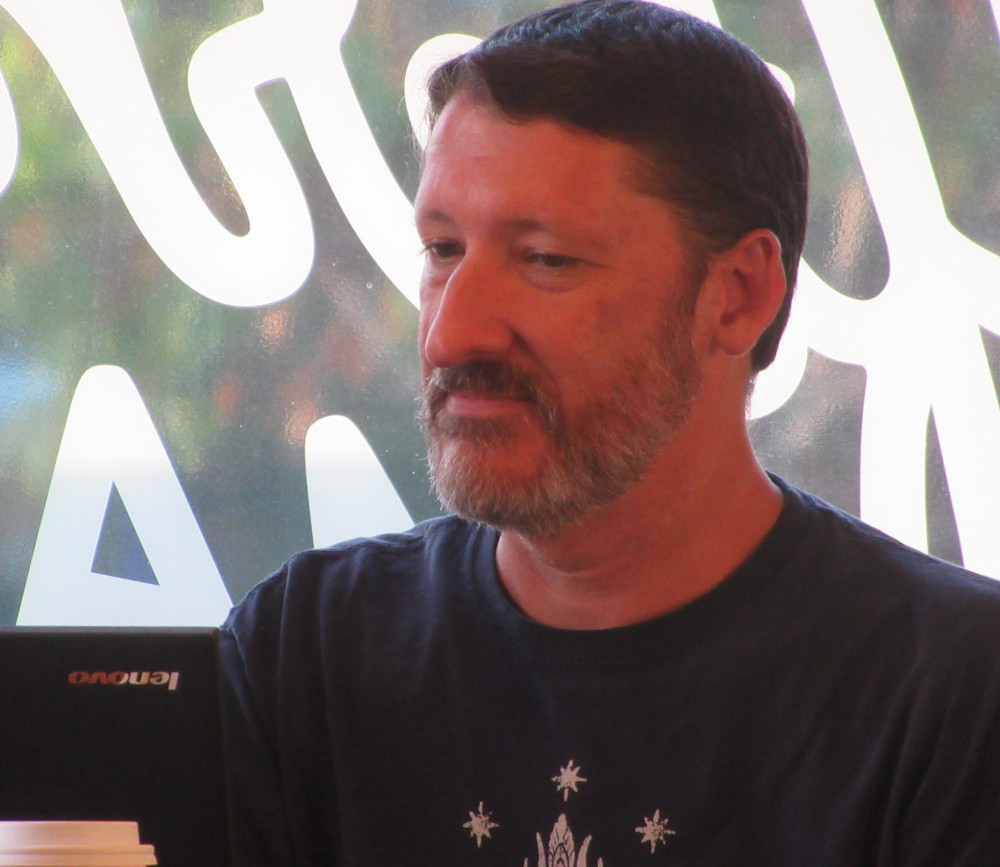Contrary to popular belief, being an author is a difficult job. A lot of people think it’s glamorous. You write, people read, you’re famous.
Not so much.
You have to come up with interesting ideas. People don’t like to read the same old thing over and over. Sometimes you’re in the middle of writing a great idea only to find out someone else just published essentially the same thing. Or your great idea had a market ten years ago, but people aren’t buying it now.
But it’s not just about the ideas. You have to present them well. It doesn’t just happen.
You write a great story with all the right elements. Relatable characters, intriguing plot, excellent description, etc. Then you take it to an editor and you revise. Then you get some beta readers and get some feedback. And you revise.
If you’re smart, you’re getting feedback from day one.
Writing is the fun part. It’s what you signed up for. Even the editing and reader feedback is part of the job you want to do. But that is only the beginning.
Ultimately, if you’ve done your work well, you have an excellent, polished story. Now how does that book get into readers’ hands?
Let’s take it from a indie-publishing perspective.
Everything after the writing part is MUCH more difficult. And much more time consuming. Mostly because it’s not really the same job. You’re not a writer anymore. You’re a publisher and a marketer.
First, your book needs a fantastic cover. People click on books that catch their eye. Nobody will even see your blurb — let alone read it — if your cover doesn’t grab their attention. You either become an artist or you pay someone to do a good job. Most likely the latter.
Once that’s done, you have a better chance of enticing readers to your book page. Your blurb needs to grab the reader’s attention from the first word. Otherwise, you wasted the money you spent on the cover.
Next, the book’s price needs to fit the market. Unknown author in a crowded genre (like me)? You may need to offer some freebies to get people’s attention. I have one: The Bahawre Legend. (Yep. Shameless promo. But it’s my website. I can do what I want.)
And that’s just the initial ground work. Now that you’ve thought all of this through and have all the pieces in place, I hope you’re not a fan of Field of Dreams.
“If you build it, they will come.”
It’s simply not true. Whoever “they” is certainly will not come. They will have no idea you built it. There are too many voices. Too much shouting. Everyone and their dog can publish a book these days. The market is exceptionally crowded.
Once you’ve “built it”, you have to find a way to tell everyone about it. Well, not everyone. The right people. The people who might actually like what you’ve created. Don’t try to convince a romance reader to try your sci-fi thriller.
You need a website and an email list. Don’t have that? Yeah, join the crowd (I’ve got a website, but no list). And if you’re an introvert, you probably don’t know who to ask to join your list. It’s not like you have a mass of acquaintances you can spread the word to.
If you’re an extrovert, that might be the easy part. It might be more difficult for you not to push your book on people who will probably not like it.
Either way, you’ll still need to advertise. Amazon ads? Maybe, if you write nonfiction. If you write fiction, don’t waste your time. Bookbub email list? Excellent. Huge numbers. Big sales.
But wait. You need a certain number of reviews and at least a certain star rating to be considered. And they still might not accept you because there’s a lot of competition to get on that list. And it’s expensive. Better start with the smaller lists.
This is where the fun starts. After weeding through a hundred email lists and narrowing it down to five that have a decent chance of getting you some sales, you shell out the money and schedule your ads.
You get mixed results. Your book’s ranking on Amazon goes up. And then your sales fall flat.
See? Being an author is a difficult job.
You find some dude on fiverr and someone else you met on LinkedIn and maybe get a few extra sales from their efforts.
You realize you will have to keep paying for ads. If you have a free book, you get a lot of downloads. But no profits (obviously). If people have to pay for your book, you may get some decent sales. You may not. But be prepared to frequently spend more on the ad than you get in sales.
It’s a crap shoot. Even successful marketing people struggle to tell you how to sell fiction books.
And if a thousand people buy your book, you may be shocked to find out only half of them read it. Yes. Even though they paid for it. If it was a free download, the vast majority of them probably never read it. Probably never even opened it.
Of the people who read your book, maybe … MAYBE 1% of them will review it. It’s disheartening. Depressing, even.
To make things worse, people are far more motivated to leave a review when they dislike something. All those people who liked your book? Very few of them will leave a review. The ten people who hated it? Half of them will leave a review.
But you keep trying. Maybe after several ad campaigns, you have enough reviews on Amazon to get accepted for a Bookbub promo. Maybe you make all your ad money from this year back in that one ad campaign.
Sigh. Deep breath.
But that’s just paid ads. While messing with all of that, you have to peruse your social media accounts. You join groups and contribute to conversations. Throw in a pitch for your book every now and then. But not too often or people will stop following you. Again, if you’re an introvert, this requires behavior contrary to your personality and is incredibly difficult.
But that’s just writing and publishing books.
Financially speaking, being an author is a full time job that doesn’t really pay the bills unless you’re famous. And only a handful of people can be that.
As a result, most authors have to diversify. Be a writing coach or an editor. Write articles and short stories for other publications. Work part time as a copy writer. Help other writers with their marketing. Or do something entirely different on the side. Bartender, web developer, Uber driver, hand model … whatever.
And that’s where a huge problem develops for authors like me. I have a full time job doing something else. I write on the side. So most of the stuff in the full time author job description has to be cut out.
I simply cannot do all of it. I have to pick and choose. I write books, do a little marketing and spend a little time on social media. I don’t have time to write articles or short stories and pitch them to various places. I don’t have time to build an email list and release regular newsletters.
This blog post is an aberration. It just happened. I didn’t schedule time for it or plan on writing it. If not for a moment of frustration looking for a place to market my books, it probably wouldn’t have happened.
And to top it all off, my SEO plugin is telling me this post doesn’t score well.
You know what? I don’t care this time. I’m writing this for humans, not search engines. If you’re a human, enjoy. If you’re a search engine, 010110011101011010010101 and I hope you choke on it. ;-)
See? Being an author is a difficult job.
If after reading this post, you still want to write books, that means you’re a writer. Go for it!

